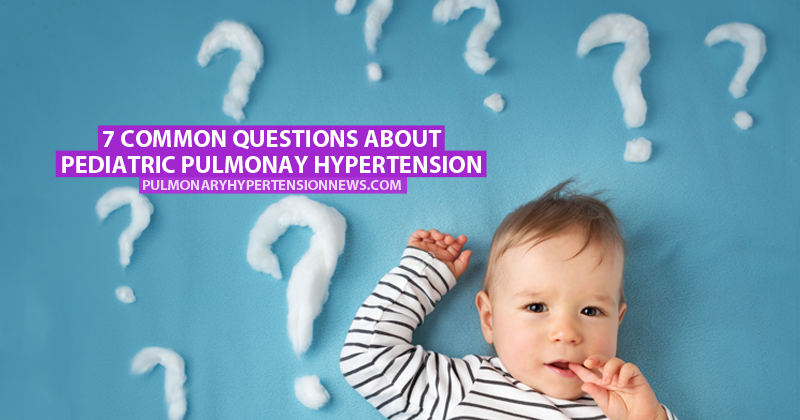7 Common Questions About Pediatric Pulmonary Hypertension

If your child has been diagnosed with pulmonary hypertension there are probably a lot of questions going through your mind. We’ve put together a list of seven of the most frequently asked questions about pediatric pulmonary hypertension with help from the Pulmonary Hypertension Association.
What causes pulmonary hypertension in children?
The causes of pulmonary hypertension in children are the same as adults. In most cases, it’s due to another health condition like congenital heart disease or another lung condition. Where no cause can be found, it’s known as idiopathic pulmonary hypertension. In a small percentage of cases, pulmonary hypertension runs is genetic.
What are the differences between adult and pediatric pulmonary hypertension?
There are no differences between adult and pediatric pulmonary hypertension in terms of symptoms. Both adults and children have the same drugs to treat the condition, but because there have been very few studies of drugs for pediatric PH, the dosage of drugs is usually based on weight for children rather than a standard dose as per adult patients.
What type of doctor will a child with pulmonary hypertension need to see?
A child with PH will need to see a pulmonologist or cardiologist who specializes in pediatric cases of pulmonary hypertension. How often they need to see their specialist will depend on the severity of their condition.
MORE: Chic-Fil-A helps out a young pulmonary hypertension patient.
What treatments are available for children with pulmonary hypertension?
As mentioned, there are no specific treatments for children with PH; they use the same drugs as adult patients. Doctors use a variety of medications, often a mixture of oral, intravenous, subcutaneous and inhaled. Medications are used to target various aspects of the disease such as reversing the effects of endothelin (peptides that raise blood pressure), increase levels of vasodilators (to widen blood vessels), mimic the body’s prostaglandins (to help prevent blood clots), anticoagulants (to thin the blood), and diuretics (to reduce fluid retention) and oxygen therapy.
What are the side effects of PH medications for children?
Children may suffer the same side effects from PH medication as adults, which includes nausea, headaches, low blood pressure, facial flushing, diarrhea, jaw pain, cough and sore throat, and nasal congestion. Rarely, some cases may experience side effects such as liver involvement.
Will pulmonary hypertension affect normal child development?
Most children with pulmonary hypertension will develop at the normal rate, but some with moderate to severe cases may have breathing difficulties which could lead to lower than average weight due to the extra calorie consumption used in breathing.
Can PH children play with other children and participate in sports?
Children with pulmonary hypertension can play with other children although they may need to rest more than their peers. They will need to avoid other children who have colds, coughs or the flu but otherwise, they are free to mix with their friends. Participating in sports depends on how severe the child’s PH is and the type of medication they are taking.
MORE: Find out more about pediatric pulmonary hypertension.
Pulmonary Hypertension News is strictly a news and information website about the disease. It does not provide medical advice, diagnosis or treatment. This content is not intended to be a substitute for professional medical advice, diagnosis, or treatment. Always seek the advice of your physician or another qualified health provider with any questions you may have regarding a medical condition. Never disregard professional medical advice or delay in seeking it because of something you have read on this website.







